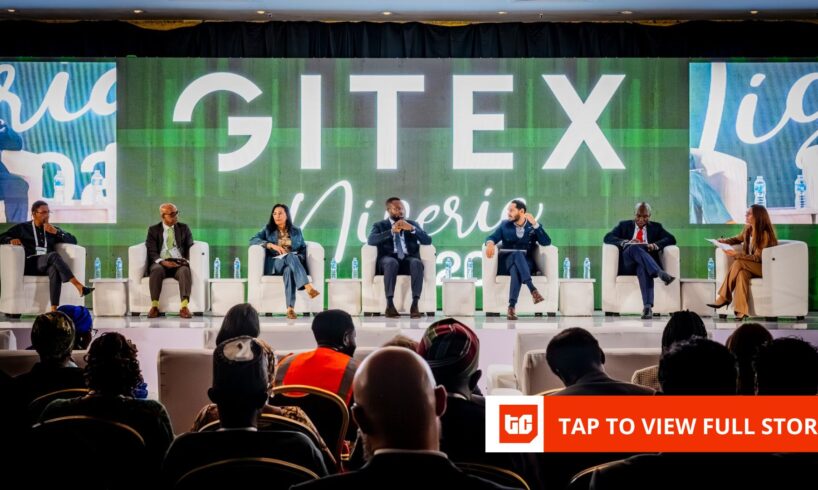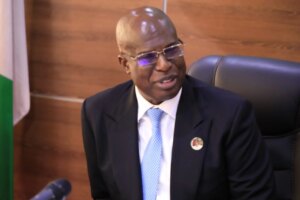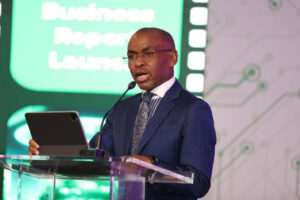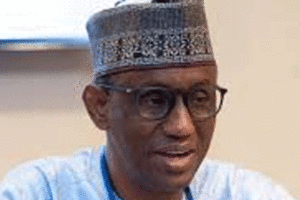
At GITEX Nigeria in Abuja on Monday, Nigeria reaffirmed its ambition to become a continental leader in artificial intelligence (AI) with a multilingual large language model (LLM) designed to process indigenous languages. The initiative, led by Bosun Tijani, Minister of Communications, Innovation, and Digital Economy, marks one of the government’s boldest efforts to drive national development through AI.
Unlike most AI models that are trained in English and other global languages, Nigeria’s LLM will support five indigenous languages alongside accented English. With a population of more than 200 million and over 500 local languages, policymakers argue that tailoring AI to local realities is both a cultural necessity and a strategic advantage.
Tijani said the multilingual model was conceived to keep Nigeria in the race for foundational AI.
“When I came in, I was extremely bullish about the fact that the only way for Nigeria would be to have our own foundational model,” he said during a panel session at GITEX Abuja. “We opted to kick off a multilingual large language model for the country, covering about five of our languages. We’ve done significantly well in collecting the data.”
The rationale is clear. Languages such as Yoruba, Hausa, Igbo, Tiv, and others are spoken by tens of millions of people. Yet they remain underrepresented in global AI systems. By prioritising them, Nigeria not only preserves cultural identity but also makes AI more usable for local populations.
The LLM is being developed by the National Information Technology Development Agency (NITDA) through its National Centre for Artificial Intelligence and Robotics (NCAIR), with input from Lagos-based AI startup, Awarri, and DataDotOrg, a global technology partner.
Balancing ambition with realities
Building a large-scale AI model requires deep scientific expertise, high-performance compute, and steady funding. Tijani acknowledged this challenge: “The reality is that the cost of building the scientific know-how that is required… and also the geopolitics around it, is something that leaders like myself are struggling with.”
He pointed to examples from countries like India, which developed local AI models but also built systems for community participation and external collaboration. India built a sovereign LLM initiative, developed by companies like Sarvam, for Indian languages and needs. Nigeria, he argued, may need to adopt a hybrid approach, combining proprietary development with open-source contributions.
AI strategy and the ecosystem approach
The multilingual LLM forms part of Nigeria’s broader National AI Strategy, in development since 2024. According to Professor Yinka David-West, Dean at Lagos Business School and a key contributor, the strategy rests on five pillars: infrastructure, ecosystem building, adoption, responsible frameworks, and governance.
One of the strategy’s most innovative mechanisms is the AI Collective, a coalition of academia, civil society, and industry. Lagos Business School is leading research and education, the Centre for Justice and Legal Development (CJLD) focuses on civil society and media, while Data Science Nigeria is supporting startup and technical ecosystem development.
“The AI Collective is really looking at building out the ecosystem,” David-West said. “Because when you think about the ecosystem, academia is part of it, industry is part of it, talent and startups are part of it. How do we start to build?”
Education as a cornerstone
Education is central to this strategy.. Nigeria’s Three Million Technical Talent (3MTT) program is aligning thousands of fellows with the AI initiative. More than 7,000 are expected to contribute directly to the LLM project, creating both a pipeline of skilled talent and a practical learning platform.
Beyond technical training, efforts are underway to familiarise policymakers and civil servants with AI fundamentals. Lagos Business School has organised workshops for directors in ministries and agencies, focusing on intellectual property, ethics, and AI applications in governance.
“If we don’t ensure that we’re educating the public sector, the governance environment will continue to be limited,” David-West said.
Funding, partnerships, impact
The multilingual LLM is currently backed by $3.5 million in seed funding from a mix of international and local partners, including UNDP, UNESCO, Meta, Google, and Microsoft.
Yet, the Minister admits that reliance on donor funding is not sustainable. “For the government to actually invest millions of dollars into those things, where is the money going to come from? That’s the conflict we need to handle,” he said.
The ultimate test of the multilingual LLM will be its social impact. By enabling AI systems to understand and generate indigenous languages, the project could transform education, healthcare, and public services. Students in rural areas could learn in their mother tongue, while traders and market women could access digital tools in familiar dialects.
As Professor David-West put it, “If that mother speaks only one native dialect and the homework is in English, it doesn’t mean she doesn’t comprehend. With AI, we can bridge those gaps.”
A continental model?
Nigeria’s multilingual large language model remains at an early stage. But if successful, it could provide a template for other African countries grappling with similar linguistic and cultural challenges.
As Tijani reflected at GITEX, the stakes are high: “AI is not just another startup frenzy. It’s about resources, research, and how we make it work for us. Balancing the global and the local—that is the challenge every nation must face.”
Mark your calendars! Moonshot by TechCabal is back in Lagos on October 15–16! Join Africa’s top founders, creatives & tech leaders for 2 days of keynotes, mixers & future-forward ideas. Early bird tickets now 20% off—don’t snooze! moonshot.techcabal.com





